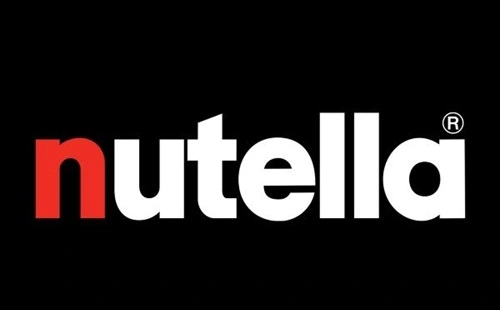Nutella, the globally beloved hazelnut and cocoa spread, is a flagship product of the Ferrero Group. Launched in 1964, Nutella has grown into a household staple across more than 75 countries, known for its unique taste and versatility. From breakfast spreads to desserts, Nutella enjoys a strong consumer base due to its rich flavor and consistent quality. As of 2024, Nutella faces both opportunities and challenges as consumer preferences shift towards healthier alternatives and sustainability becomes a critical issue in the food industry.

Current Overview of Nutella:
Nutella remains a market leader in the chocolate spread category. With its wide distribution network and strong brand recognition, the product is a top choice for consumers in the premium segment. Nutella’s branding as a breakfast and snack spread has played a significant role in its global success. However, the company has faced criticism due to its use of palm oil and the health implications of a product that is high in sugar and fat. To maintain its market dominance, Nutella is focused on expanding into new markets, introducing product innovations, and improving its sustainability efforts.
Strengths:
1. Global Brand Recognition: Nutella is one of the most recognized brands in the world. Its association with quality and indulgence has allowed it to capture a loyal customer base across various age groups and regions. The brand enjoys a presence in more than 75 countries, and its iconic packaging reinforces its market dominance.
2. Strong Product Positioning: Nutella is marketed as both a tasty and nutritious breakfast spread, offering an alternative to peanut butter, jams, and other sandwich spreads. This positioning, alongside its versatility as a topping for pastries and desserts, helps Nutella remain relevant in various culinary applications.
3. Unique Taste and Ingredient Sourcing: The combination of hazelnut, cocoa, and skim milk creates a flavor profile that sets Nutella apart from other spreads. The brand emphasizes the quality of its ingredients, such as sustainably sourced hazelnuts and cocoa, which aligns with the growing consumer demand for responsibly sourced products.
4. Efficient Distribution Network: Ferrero’s extensive global distribution ensures that Nutella is widely available in grocery stores, retail chains, and online platforms. The brand’s reach helps maximize visibility and accessibility, making it a go-to choice for consumers worldwide.
Weaknesses:
1. Health Concerns: Nutella’s high sugar and fat content, along with its use of palm oil, has raised concerns among health-conscious consumers. The negative press regarding potential health risks associated with the consumption of processed palm oil has led to some consumer backlash and trust issues.
2. Limited Penetration in Emerging Markets: Although Nutella is a dominant player in the Western world, it struggles to achieve the same level of success in emerging markets like India and China, where bread-based breakfasts are less common. This limits its market potential in these growing economies.
3. Premium Pricing: Nutella’s price positioning as a premium product makes it inaccessible to a significant portion of consumers, particularly in price-sensitive markets. This can limit its reach compared to lower-priced alternatives in the spread category.
Opportunities:
1. Growing Popularity of Western Breakfast Trends in Emerging Markets: As Western eating habits spread across the globe, especially in developing economies, Nutella has the opportunity to increase its penetration. With the rise in bread consumption in countries like India and China, Nutella could capitalize on this trend by adapting its marketing strategy to fit local preferences.
2. Introduction of Healthier Variants: Given the increasing consumer preference for healthy and organic food options, Nutella can introduce lower-sugar or organic versions of its spread to appeal to health-conscious consumers. This diversification could help the brand reach new customer segments.
3. Expansion Through E-commerce: With the rise of online shopping, Nutella has the chance to strengthen its e-commerce strategy, expanding its reach through digital channels and enhancing convenience for consumers. This would allow Nutella to tap into new markets and demographics.
4. Sustainability and Ethical Sourcing: As sustainability becomes a critical factor for consumers, Nutella can further emphasize its commitment to using sustainably sourced ingredients like palm oil and cocoa. This strategy would not only improve its brand image but also attract environmentally conscious buyers.
Threats:
1. Intensifying Competition: Nutella faces stiff competition from other spreads like Hershey’s and local brands in various markets. Additionally, the increasing popularity of healthier, organic, and nut-free alternatives could pose a threat to Nutella’s market share.
2. Changing Consumer Preferences: With growing awareness of health and wellness, consumers are gravitating towards products with lower sugar and fat content. Nutella’s high-calorie content may deter health-conscious consumers, especially as the demand for organic and clean-label products rises.
3. Supply Chain Vulnerabilities: Nutella relies on key ingredients like hazelnuts and cocoa, which are subject to price fluctuations and supply chain disruptions due to geopolitical issues, climate change, or economic instability. Any disruption in these supply chains could affect production and profitability.
Future Plans:
Looking ahead, Nutella aims to diversify its product portfolio to meet evolving consumer demands. The introduction of healthier and more sustainable versions of the product, such as reduced-sugar variants, is expected to appeal to a broader audience. Additionally, Nutella is focusing on expanding its presence in emerging markets by adapting its marketing strategy to local breakfast and snacking habits. The brand also plans to strengthen its digital presence through e-commerce platforms and further promote its commitment to sustainability, particularly in terms of ingredient sourcing and packaging.
Conclusion:
Nutella’s global brand strength, unique product offering, and extensive distribution network position it as a leader in the hazelnut spread category. However, the brand must address challenges related to health concerns, competition, and market penetration in emerging economies. By leveraging opportunities such as product diversification, e-commerce growth, and sustainability initiatives, Nutella can continue to thrive in an increasingly health-conscious and competitive global market in 2024 and beyond.